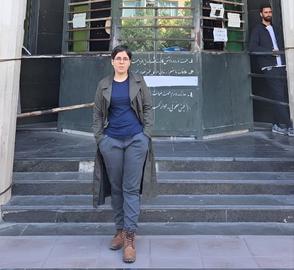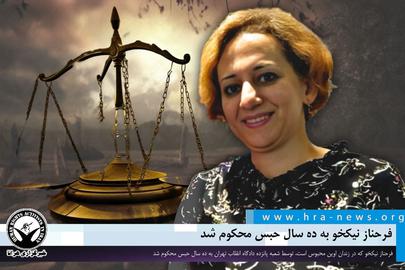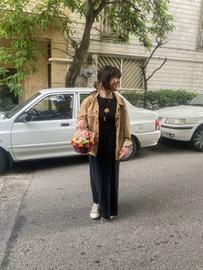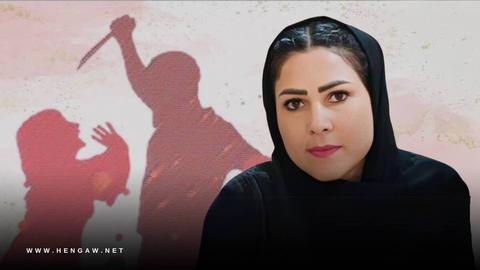“Crocodile farming” can hardly be the first business opportunity that comes to mind, especially for women in Iran. But this is exactly what Mojgan Roostaei has been doing for years on the Persian Gulf island of Qeshm, where she breeds some of the biggest crocodiles in the world. What is more, she was recognized as the youngest job creator in the country when she was 23 years old.
Born in the city of Isfahan in 1983, Roostaei holds a degree in zoology. “My childhood was spent like all children in those years,” she says. “Of course, with the difference that, unlike some of them, I was very fond of animals and enjoyed spending time with them. Even when we went for a walk in nature with the family, I didn't realize it until they screamed, because contact with snakes and lizards is scary and sometimes impossible for some people.”
Roostaei worked for Ahvaz Petrochemical Company and her husband Behrouz Salarvand for a computer services firm but, after a while, they realized that this was not the kind of life they wanted and decided to do something entirely different: “Our decision became serious and we looked at different options. Among them, because of my interest in the world of animals, we thought about animal breeding. We prepared a list of animals such as bees, ostriches, turkeys, seahorses, sea cucumbers and fish, and since we wanted to pursue a new activity, we did extensive research and finally decided to breed crocodiles [even though] crocodiles are one of the most difficult reptiles to breed.”
Breeding crocodiles was outlawed in Iran until 2006, when top clerics approved this activity after veterinary experts offered up economic and technical justifications.
To achieve their goal, the couple registered a company named Nopek, an abbreviation of the Persian words for “innovation,” “dynamism” and “endeavor.”
The initial capital needed for launching this project was not negligible, but Roostaei and her husband were determined to realize their plan: “I consulted with my father and sold our home, our car and whatever else we had to get the necessary capital. The Agricultural Bank provided a loan of around 100 million tomans for this project. To get this loan of 100 million tomans, we mortgaged two houses, one in Tehran and the other in Isfahan. With this loan, our savings and the help of our families, we gathered around 400 million tomans.”
Nobody had ever bred crocodiles in Iran, meaning that laws and regulations for crocodile farming, as well as expertise, did not exist in the country. So Roostaei and her husband decided to take qualifying courses in Malaysia and Thailand.
These courses lasted a year and, upon their return to Iran, they contacted various organizations such as the Fisheries Organization, the Environmental Protection Agency and the Veterinary Organization to present their project. Finally, in 2008, the Veterinary Organization issued the first permit for a crocodile farm in Iran to the Nopek company.
Roostaei and Salarvand chose Qeshm Island to establish the farm because of its warm and humid climate. They started out by importing eight young saltwater crocodiles from Malaysia. They were soon joined by 15 more animals from Malaysia and another 20 adults brought from Thailand.
The couple had no children at the time but Roostaei says: “That day, when the plane carrying the eight saltwater crocodiles imported from Malaysia landed…we felt like parents when the crocodiles got out of the boxes and were put into the farm ponds. Our efforts of three and a half years had paid off and we could forget all the hardships we had experienced.”
In 2013, Roostaei succeeded in spawning the first crocodiles in the farm. The couple stopped importing crocodiles and, instead, focused on getting animals in the farm to lay more eggs.
The farm, which employed 20 local people by 2014, became a tourist attraction and attracted other businesses, including food and water sports shops.
“To attract an audience, programs that are broadcast on television only show the moments when crocodiles are hunting,” Roostaei says. “Contrary to popular belief, this creature is extremely patient and intelligent. It does not move for no reason. It does not attack for no reason. In the crocodile park in Qeshm, people stand half a meter away from the crocodiles and look at them, but the crocodiles have never attacked the fence behind which people are standing. They know that there is a fence between them and they don't attack but, if you go inside the fence, they will definitely attack.”
The Iranian government also took notice and awarded Roostaei the title of "meritorious entrepreneur."
This entrepreneur started the business with the idea of producing crocodile leather bags, shoes, purses and belts to be sold in Iran and abroad. They also want to produce crocodile meat, but only for export since eating it is not permissible in Islam.
visit the accountability section
In this section of Iran Wire, you can contact the officials and launch your campaign for various problems




























comments